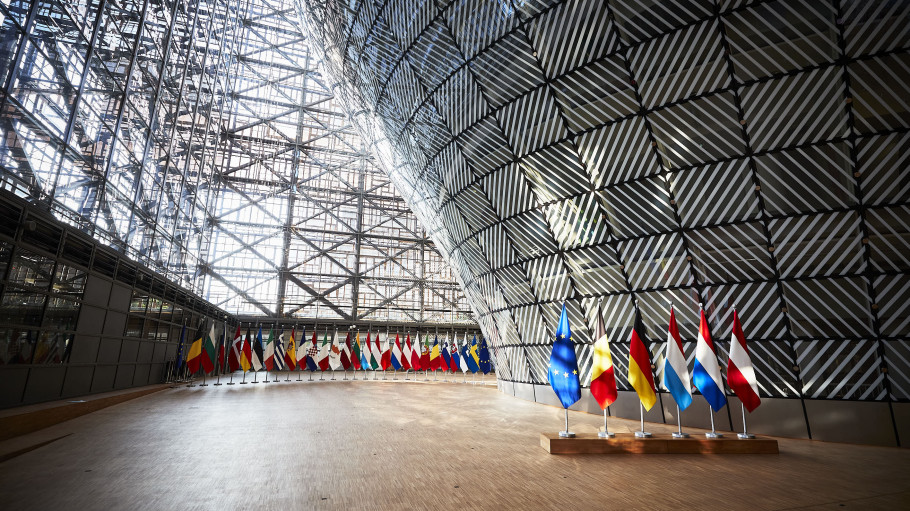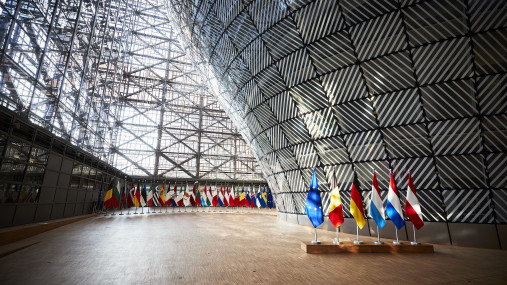
Publications » Position papers » Call for urgent action to save the European steel industry and the livelihood of our workers
Call for urgent action to save the European steel industry and the livelihood of our workers
Downloads and links
Recent updates

Your Excellencies,
The European steel industry is an indispensable part of many key EU manufacturing value chains and stands for innovation, desired product solutions and high-quality jobs in Europe. We are committed to contribute to the EU’s ambitious decarbonisation and global climate protection objectives, securing a just transition and quality jobs.
However, we are at a crossroad: our industry is in its worst crisis since the financial and economic crisis in 2009. This is driven by the impact of global steel overcapacity and unfair trade, which exacerbates the impact of low steel demand and high energy prices in the EU. Without urgent measures, it will make it difficult in most of the EU member states to preserve a resilient and sustainable steel industry that can invest in our ambitious decarbonisation projects by 2030 and beyond.
Steel production in the EU has been shrinking by 30% since 2008 to 126 million tonnes in 2023. Restructuring and capacity reduction processes have led to a loss of almost 100,000 jobs in the last 15 years. Capacity utilisation has recently dropped to the lowest, unviable levels of around 60%. A trend that continues in 2024.
The Ministerial Meeting of the Global Forum on Steel Excess Capacity (GFSEC) has just confirmed that global steel excess capacity (551 million tonnes in 2023) continues to be a rapidly growing structural problem. According to the OECD, additional 157 million tonnes of capacity are in progress by 2026, mainly using very carbon intensive conventional steelmaking technology.
A Steel Action Plan as part of the Clean Industrial Deal must include both, emergency measures and a structural solution to the disastrous impact of global overcapacity and unfair trade on the EU steel market, putting jobs and the clean transition at risk. Further undermining the EU’s competitiveness as well as our resilience and strategic autonomy would be a toxic option.
In line with the recommendations of the Draghi report, we therefore call upon you – the heads of state and government of the EU Member States – to support and endorse as a matter of urgency:
• Measures to strengthen and ensure assertive enforcement of the EU Trade Defense Instruments to stop unfair trade practices and circumvention, and a structural solution to comprehensively stop the spill-over impact of persisting and worsening global excess capacity. The current steel safeguards must be replaced by a more robust tariffication regime.
• Improvements to the Carbon Border Adjustment Measure (CBAM) to prevent circumvention, resource shuffling and delocalisation of downstream sectors, and to preserve EU steel exports.
• Action throughout the EU to reduce energy costs for energy intensive industries exposed to significant global competition, and to secure access to raw materials while retaining steel scrap within the EU.
• Establishment of lead markets to drive the demand for green steel in Europe.
We call upon the European Council to consider the above in its conclusions on 17/18 October 2024 and EU policy priorities.
Signatures:
Henrik Adam, President of EUROFER, CEO Tata Steel NH
Mario Arvedi Caldonazzo, Vice-President of EUROFER, CEO Arvedi
Geert Van Poelvoorde, Vice-President of EUROFER, CEO ArcelorMittal Europe
Timoteo Di Maulo, Vice-President of EUROFER, CEO Aperam
Lorenzo Riva, Vice-President of EUROFER, CEO Riva Stahl
Hubert Zajicek, Vice-President of EUROFER, CEO voestalpine Steel Division
Gunnar Groebler, Vice-President of EUROFER, CEO Salzgitter AG
Photo credits: European Union

Download this publication or visit associated links
Developed with the support of the Offshore Wind Foundation Alliance and European Wind Tower Association, the position paper outlines the strategic importance of wind components for Europe’s green transition and calls for targeted measures to strengthen their role within the NZIA.
Brussels, 2 April 2025 - The latest data unveiled by the OECD in its meeting in Paris draw an extremely worrying picture, where global steel excess capacity is expected to grow from an estimated 602 million tonnes in 2024 to 721 million tonnes by 2027 – over five times the EU's steel production. The European steel industry - already severely hit by the spill-over effects of global overcapacity and the U.S. steel import tariffs - reiterates the crucial need for strict and effective EU post-safeguard measures to ensure its survival.
Brussels, 19 March 2025 – The Steel and Metals Action Plan, unveiled today by the European Commission, provides the right diagnosis to the existential challenges facing the European steel industry. Concrete measures need to follow swiftly to reverse the decline of the sector, re-establish a level playing field with global competitors, and incentivise investment and uptake of green steel in the market.